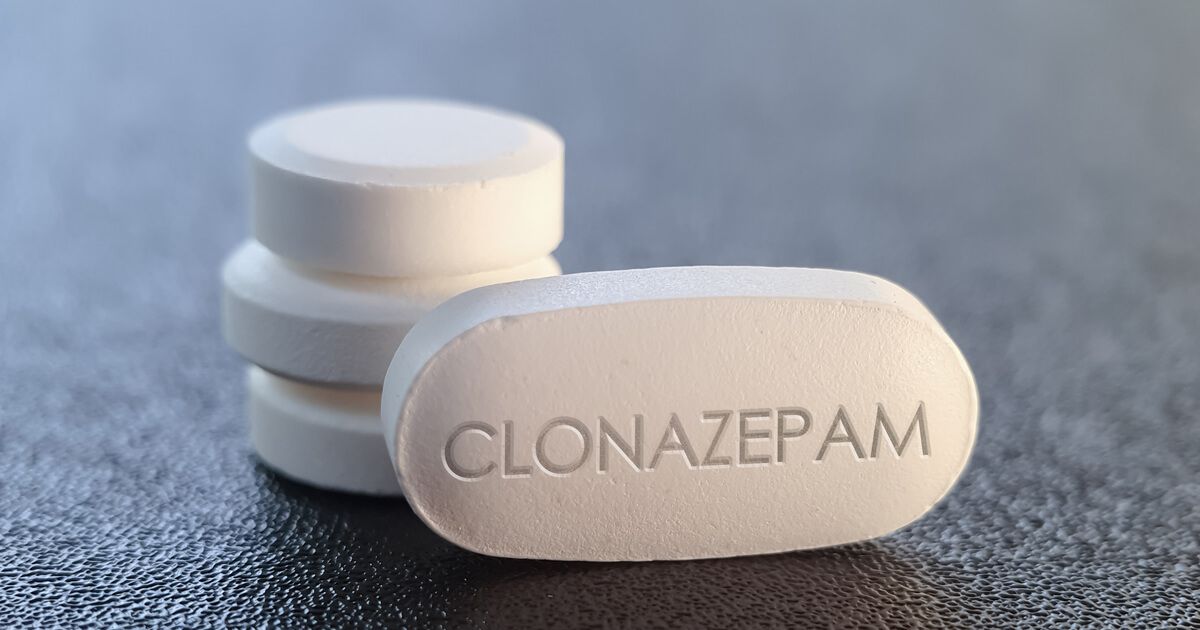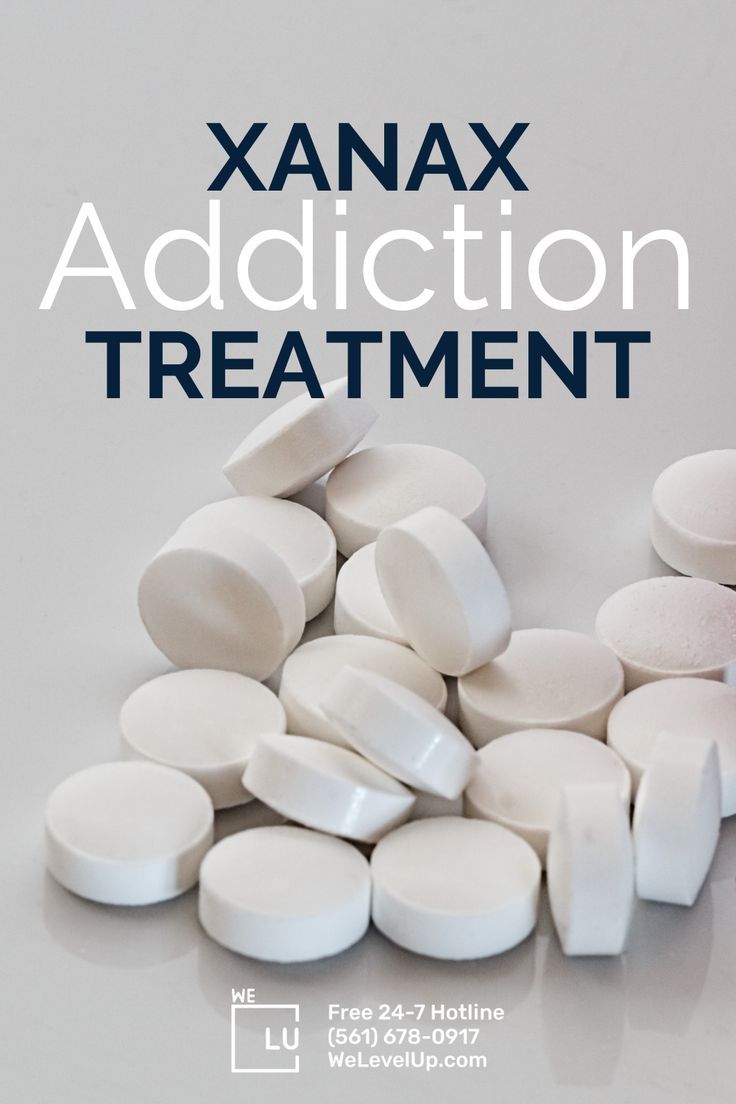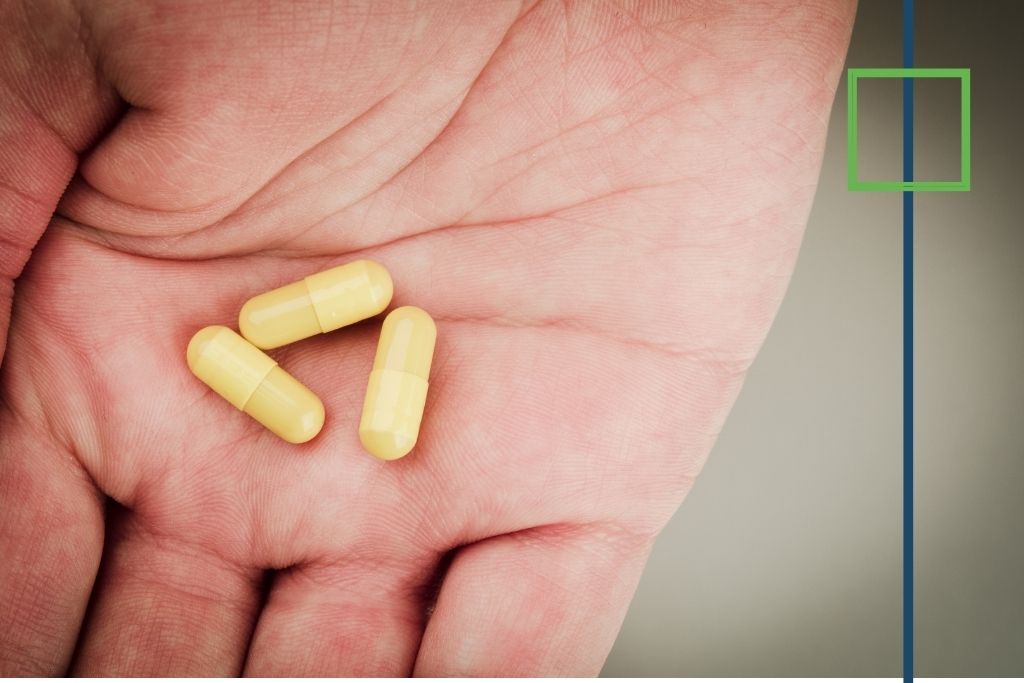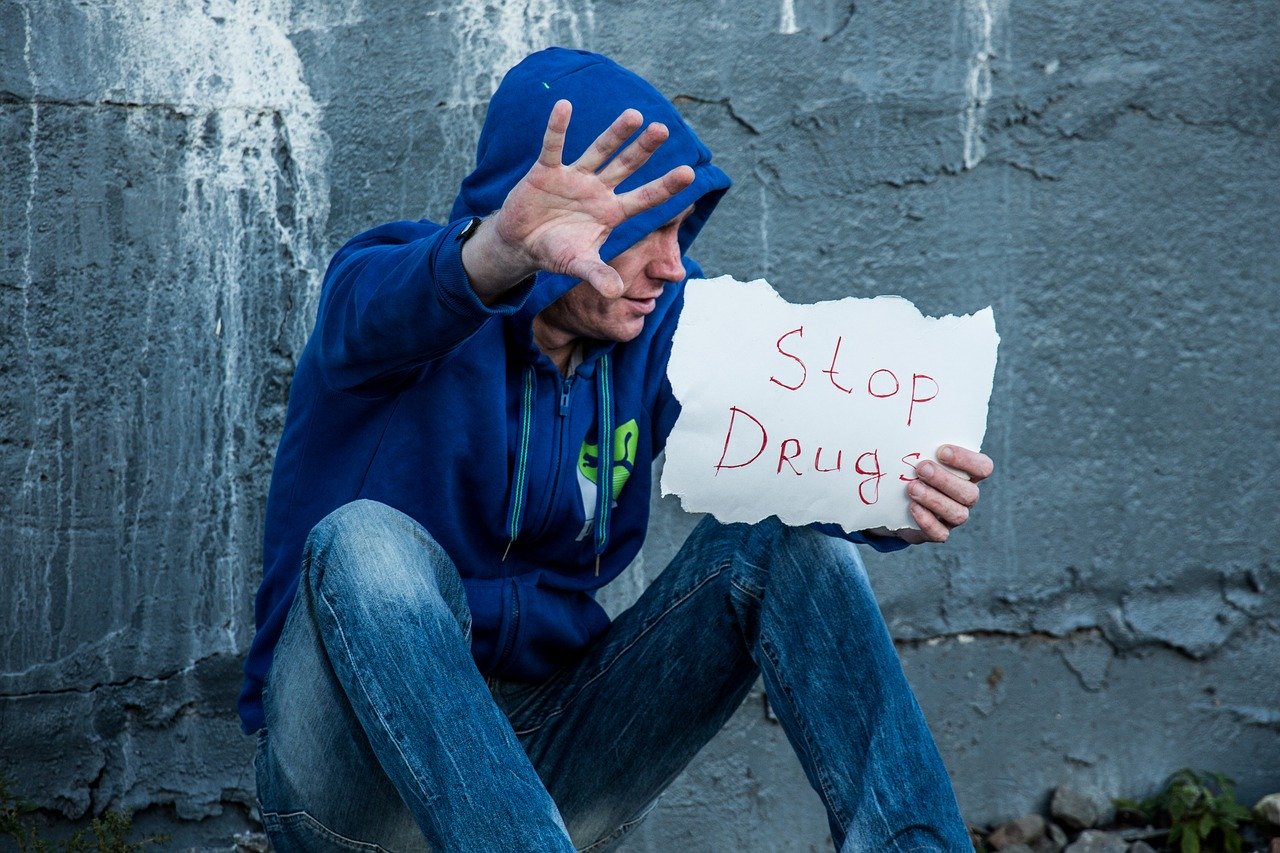What Is Klonopin?
Klonopin has the generic name of Clonazepam. It is a benzodiazepine commonly used to treat various conditions, including anxiety disorders and epileptic seizures [1]. However, due to its low price and easy availability, it has become a widely misused medication in medical and recreational contexts. Learn more about the depressive attributes caused by mixing Klonopin and alcohol, along with the serious problems and side effects that may arise.
There is concern about their potential to cause withdrawal symptoms. Heart palpitations are among the last things any anxious individual wants to undergo, but they’re quite common when withdrawing from Klonopin. Benzodiazepines’ cardiac side effects can be fatal without professional healthcare assistance. Klonopin detox at a medically supervised facility can lessen the severity of the symptoms and make the withdrawal process significantly safe and more comfortable to endure.
Smoking is among the fastest drug delivery methods, reaching the brain in seconds. This also means that smoking Klonopin can have some of the most intense and dangerous outcomes. Taking benzodiazepines like Klonopin with alcohol (benzos and alcohol), opioid medicines, or other central nervous systems (CNS) depressants (including street drugs) can cause breathing problems (respiratory depression), severe drowsiness, coma, and death.
Skip To:
- What is Klonopin?
- Is Klonopin Addictive?
- Can You Drink Alcohol with Klonopin?
- How Does Alcohol Affect Klonopin?
- Can Klonopin Be Used for Alcohol Withdrawal?
- Klonopin for Alcohol Withdrawal Dosage
- Mixing Klonopin and Alcohol
- Klonopin Alcohol Interaction
- 0.5 Mg Klonopin and Alcohol
- 25 Mg Klonopin and Alcohol
- Klonopin and Alcohol Side Effects
- Klonopin and Alcohol Liver Effects
- Klonopin and Alcohol Blackout
- Klonopin Alcohol Suicide
- Klonopin Alcohol Detox
- Klonopin Alcohol Death
- Co-Occurring Addiction (Klonopin and Alcoholism)
Learn More:
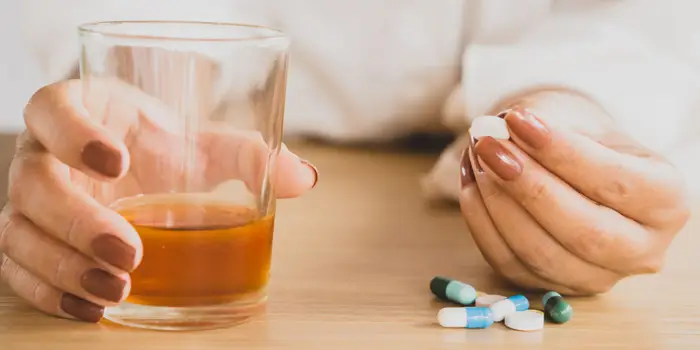
Is Klonopin Addictive?
Klonopin is a central nervous system (CNS) depressant with a high potential for addiction when taken long-term or in recreational doses or combined with alcohol or other drugs. Klonopin may lead to dependence and tolerance, even when prescribed. Some people may underestimate the addictive potential of Klonopin because it is prescribed to them by a doctor.
Klonopin addiction can occur more easily when an individual abuse the prescription drug. Klonopin has been mixed with alcohol, opioid drugs, and even methadone to enhance the potency of these drugs. Individuals who use Klonopin without a prescription to get high take the pill differently than prescribed, whether by taking more or crushing and snorting the pill instead of taking it whole and by taking the medication more frequently. Through this process, the body develops a tolerance and a need for the drug.
Klonopin is often diverted for nonmedical use and sold illegally due to its ability to produce euphoria, relaxation, and feelings of calm in some users. Unfortunately, other users may become dependent on the drug to help keep their anxiety under control. If you or a loved one is currently using Klonopin, educate yourself on the signs of Klonopin addiction to recognize a problem and seek professional help.
Signs Of Klonopin Addiction
Someone with Klonopin addiction will continue taking the drug even if they know that taking it is harmful to them. They may seek Klonopin in high doses even though they see the drug’s negative impact on their life.
Common signs of Klonopin addiction may include:
- Needing the drug to function.
- Making excuses to use Klonopin in a way other than prescribed.
- Neglecting to eat or having a poor appetite.
- Becoming defensive when discussing use.
- Experiencing cravings for the drug.
- Tolerance, or needing to increase the dose to achieve the same effect as before.
- Missing work, social activities, or hobbies because of drug use.
- Continuing to use the drug despite any harm it may be causing.
- Experiencing withdrawal symptoms when use is stopped.

Get Your Life Back
Find Hope & Recovery. Get Safe Comfortable Detox, Addiction Rehab & Mental Health Dual Diagnosis High-Quality Care at the We Level Up Treatment Centers Network.
Hotline (877) 378-4154Can You Drink Alcohol with Klonopin?
It is not safe to mix alcohol and Klonopin (both are CNS depressants). When Klonopin is combined with alcohol, the medication can be life-threatening. Individuals with mental health conditions and those who struggle with substance use disorder are at higher risk of abusing Klonopin and alcohol together. Clonazepam is classified by the Drug Enforcement Administration as a Schedule IV controlled substance. This classification means that while it does have a legitimate medical purpose, there is still some potential for abuse, dependence, and addiction.
Alcohol increases Klonopin’s effects just as Klonopin increases alcohol’s effects. Taking a sedative like Klonopin and alcohol together can cause extreme drowsiness and a loss of consciousness. When people use Klonopin and alcohol together, the liver will slow down, reducing its effectiveness at clearing both substances and toxins from the body. The damaged liver will cause the sedative to build up in the body, becoming dangerous to one’s health.
How Does Alcohol Affect Klonopin?
Is alcohol a depressant? Klonopin is similar to alcohol in that it acts as a central nervous system depressant (CNS). For people with anxiety, Klonopin effectively eliminates extreme feelings of fear and worry. Klonopin gives patients a sense of calm and relaxation. This feeling can become addictive, Because CNS depressants like alcohol and Klonopin increase drowsiness and depress breathing and heart rate. Combining these substances intensifies these effects. This intensifying effect is what makes mixing the two so dangerous. Even small doses of alcohol and Klonopin can lead to poor coordination and drowsiness. This increases a person’s chances of falling and seriously injuring themselves.
According to a 2014 SAMHSA study [5], 32% of all ER visits for benzodiazepines like Klonopin resulted in serious outcomes for the patient, including permanent disability and overdose deaths. 44% of all surveyed ER visits involved mixing drugs like Klonopin and alcohol. Young individuals who struggle with alcohol use disorder are the most likely to combine the two substances. Studies of undergraduate students found that rates of abusing prescription drugs with alcohol were as high as 12.1%. 5%.
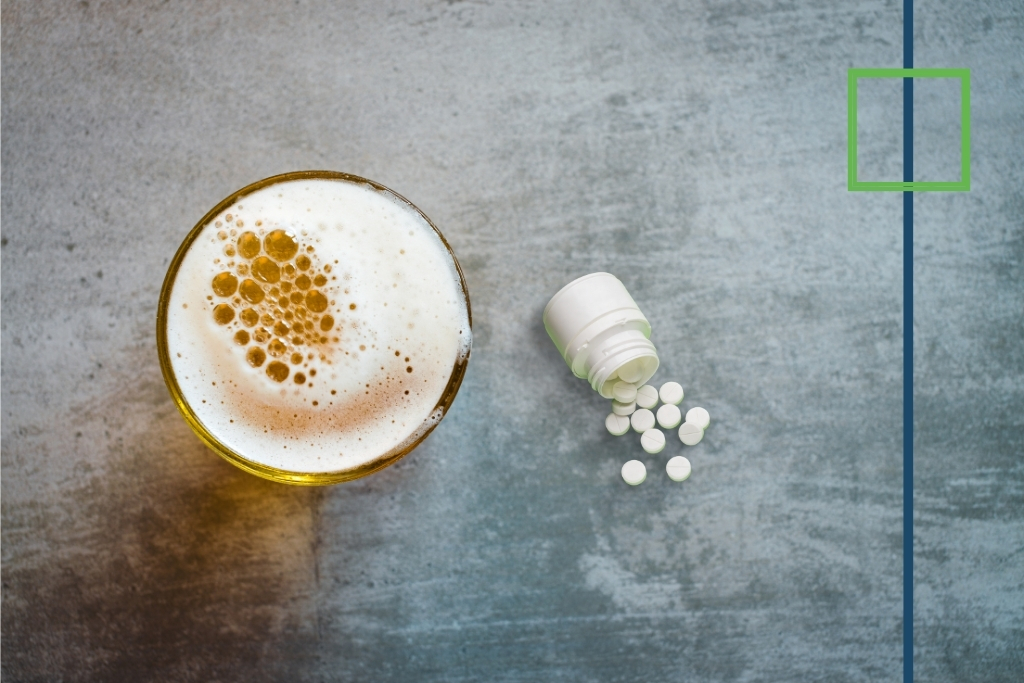
First-class Facilities & Amenities
World-class High-Quality Addiction & Mental Health Rehabilitation Treatment
Rehab Centers TourRenowned Addiction Centers. Serene Private Facilities. Inpatient rehab programs vary.
Addiction Helpline (877) 378-4154Proven recovery success experience, backed by a Team w/ History of:
15+
Years of Unified Experience
100s
5-Star Reviews Across Our Centers
10K
Recovery Success Stories Across Our Network
- Low Patient to Therapist Ratio
- Onsite Medical Detox Center
- Comprehensive Dual-Diagnosis Treatment
- Complimentary Family & Alumni Programs
- Coaching, Recovery & Personal Development Events
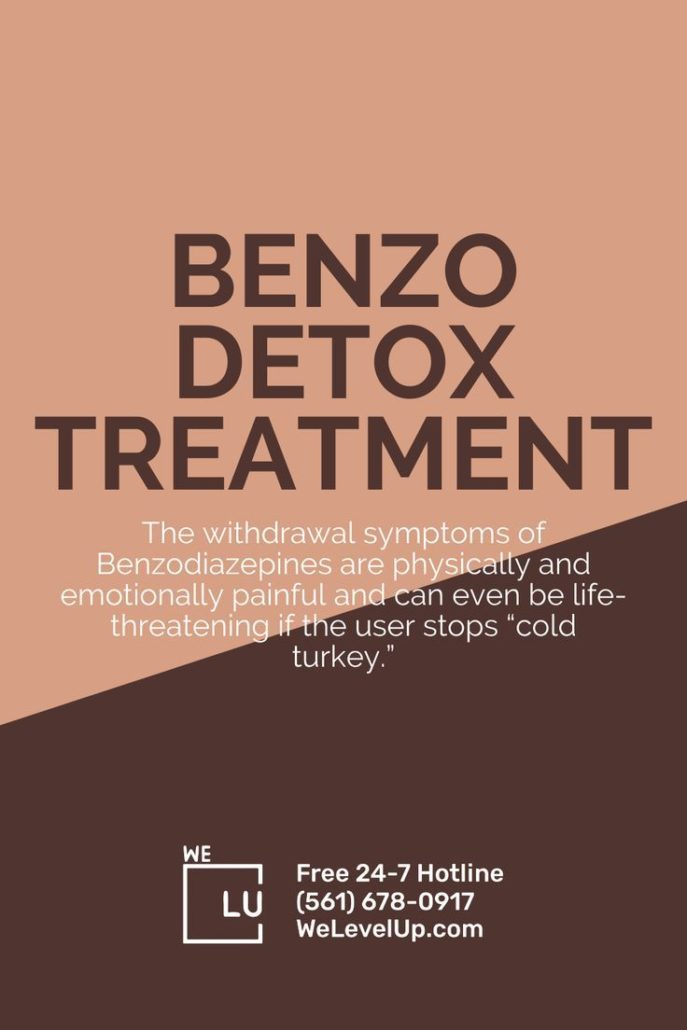
Can Klonopin Be Used for Alcohol Withdrawal?
People have been using benzos for alcohol withdrawal symptoms since the 1960s. Here’s a breakdown of the process:
- Alcohol increases GABA levels in your brain.
- When you quit drinking, GABA levels fall.
- Low levels of GABA cause panic, seizures, and other withdrawal symptoms.
- Benzos activate GABA receptors.
- This slows down your central nervous system and creates a calming effect.
- You get relief from alcohol withdrawal symptoms.
Klonopin for Alcohol Withdrawal Dosage
Usually, you take Klonopin for three days during detox. Your doctor may give you other medications as needed.
Klonopin is not the most common benzo for alcohol detox. Doctors usually recommend Librium or Valium. Librium stops convulsions very effectively. Valium is less likely to cause an overdose than other benzos. In addition, both of these drugs are long-lasting. Short-lasting benzos are not as helpful during detox.
Although benzos help with alcohol withdrawal, these drugs can be dangerous. They have a high potential for abuse. They are also physically addictive, and they can cause withdrawal symptoms. The symptoms are similar to alcohol withdrawal. If you mix alcohol and benzos, you can face serious health issues.
Mixing Klonopin and Alcohol
The two serious risks of benzodiazepines such as Klonopin are the potential for abuse, which may lead to overdose, and the development of physical dependence, which may lead to Klonopin addiction. Klonopin enters the bloodstream and makes its way to the brain in an hour, while it can remain in the system for close to three days, depending on the dose size (the half-life is between 18 and 39 hours). Alcohol can intensify these effects.
There are many dangers of mixing alcohol with clonazepam. Some may experience difficulty breathing, seizures, nausea, vomiting, and even cardiac arrest. The heart can stop beating, and the lungs can quit functioning when mixing these two substances, resulting in death for the patient. The effects of mixing clonazepam and alcohol can also include long-term damage to the liver, kidney disease, and other problematic health conditions.
Klonopin Alcohol Interaction
The Klonopin alcohol interaction is as follows: The combined use of alcohol-containing products and benzodiazepines (such as Klonopin) can lead to the central nervous system (CNS) depression and respiratory depression. The chance of excessive sedation is high, and large enough doses of Klonopin could put you in danger of breathing issues.
Klonopin has a relatively long half-life, which refers to the time it takes for half of one dose of a drug to be eliminated from the body. For Klonopin, this time period ranges from 30-40 hours, meaning it takes between 2-3 days for 50% of Klonopin to be expelled from a person’s system. Based on its half-life, some amount of the drug will likely stay in the system for about 6-9 days after the last dose. If the alcohol and dose of the medication are separated by long enough, you probably won’t notice any ill effects.
0.5 Mg Klonopin and Alcohol
How dangerous is it to combine 0.5 mg of Klonopin and alcohol? There is certainly a precaution when taking Klonopin and alcohol. The severity of Klonopin alcohol interaction depends on many factors, such as the dose of Klonopin and how soon alcohol and Klonopin are taken together.
25 Mg Klonopin and Alcohol
When taking Klonopin, doctors normally only prescribe it for 2-3 weeks. Keep in mind that there’s the potential for abuse if it takes longer. If you do combine these 2 substances, it can cause you to feel depressed or drowsy. You also increase your risk of experiencing depressed breathing. Depressed breathing means that not enough oxygen is getting to your brain. This leads to your brain sending oxygen to your vital organs to protect the heart. First, blood oxygen will be removed from the extremities, leading to the blue tint in your fingernails or lips. Over time, your brain will start shutting down vital organs, including the brain.
World-class, Accredited, 5-Star Reviewed, Effective Addiction & Mental Health Programs. Complete Behavioral Health Inpatient Rehab, Detox plus Co-occuring Disorders Therapy.
CALL (877) 378-4154End the Addiction Pain. End the Emotional Rollercoaster. Get Your Life Back. Start Drug, Alcohol & Dual Diagnosis Mental Health Treatment Now. Get Free No-obligation Guidance by Substance Abuse Specialists Who Understand Addiction & Mental Health Recovery & Know How to Help.
Klonopin and Alcohol Side Effects
Drinking alcohol while taking Klonopin (like other drug interactions) can increase specific side effects. These include, but are not limited to, the following:
- Headache
- Fatigue
- Dizziness
- Blurred vision
- Drowsiness
- Nausea with or without vomiting
- Loss of coordination
- Upset stomach
- Impaired motor skills
- Memory problems
- Increased heart rate
You might be able to tell if a person is addicted to alcohol and Klonopin if he or she shows symptoms such as:
- Personality changes
- Dizziness
- Insomnia
- Tension
- Tachycardia
- Confusion
- Numbness
- Heart palpitations
- Sweating
- Hallucinations
- Memory loss
- Panic attacks
- Seizures
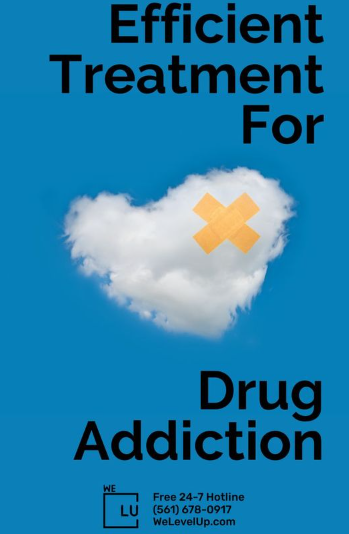
Klonopin and Alcohol Liver Effects
Both alcohol and Klonopin are processed in the liver. Mixing the two can stress the liver and prevent it from processing the substances efficiently. Klonopin and alcohol cause the liver to scar (cirrhosis) and increase cancer risk. Consuming alcohol excessively can lead to alcohol liver damage on its own. It causes fat to build up in the liver, which leads to scarring and inflammation. Alcoholic cirrhosis of the liver, fatty liver disease, and liver cancer are some conditions that develop when the liver is not healthy. This buildup can lead to Klonopin overdose.
A person with a damaged liver cannot depend on the organ to clear Klonopin effectively. It will take longer for Klonopin to exit the body through the urine when the liver isn’t healthy. When it comes to alcohol, the liver needs at least an hour to process one standard drink. If you take two drinks and Klonopin is in your system, the liver will require an hour to clear just one drink and an additional hour to remove the second drink, all with Klonopin in its system. It won’t get to the Klonopin until after it has cleared the alcohol, which means the buildup of the benzo in the system is likely.
Klonopin and Alcohol Blackout
Drinking alcohol when taking Klonopin could result in alcohol blacking out. Alcohol-related blackouts are gaps in a person’s memory for events that occurred while intoxicated. These gaps happen when a person drinks enough alcohol to temporarily block the transfer of memories from short-term to long-term storage—known as memory consolidation—in a brain area called the hippocampus. A blackout is not the same as “passing out,” which means either falling asleep or losing consciousness from drinking too much.
It is possible to blackout from Benzodiazepines such as Klonopin. The phenomenon is similar to blacking out from drinking alcohol; the risk increases when combining Benzodiazepines with alcohol. Both substances work on the Gamma-Aminobutyric Acid (GABA) receptors of the brain, and when more natural GABA is present, communication between neurons slows down. Slowed communication means that memories do not go from short-term memory to long-term storage, resulting in what is known as “blacking out.” This is called anterograde amnesia, a condition that impairs short-term and long-term memory creation, causing a complete inability to recall events that occurred during intoxication.
.
Klonopin Alcohol Suicide
Almost one million people worldwide die due to suicide each year. Globally, the annual suicide rate is estimated to be 11.4 suicides per 100,000 people, although this estimate varies between and within countries. Mental illness is a major problem, and suicide is the second most common cause of death worldwide in adolescents and young adults. The most predominant psychiatric diagnoses that increase the risk of suicide are depressive disorders Other conditions that increase the risk of suicide include alcohol use disorders, anxiety disorders, eating disorders, psychotic disorders, personality disorders, and some somatic disorders (e.g., cancer and stroke).
However, for many years the potential for benzodiazepines to increase the risk of suicide in certain groups of depressed patients has been debated. Younger people (< 25 years) who have a borderline personality disorder (BPD) or do not respond to treatment with antidepressants may have an increased potential risk for suicidal ideation, and careful monitoring and close follow-up are necessary when prescribing these drugs.
Klonopin Alcohol Death
It is not safe to mix Klonopin with alcohol (both are CNS depressants). When Klonopin is combined with alcohol, the medication can be deadly. The Klonopin half-life is about 30 to 40 hours. Consult your doctor about consuming alcohol before, during, or for some time after taking Klonopin.
Klonopin is relatively safe if taken in the doses it is prescribed. However, it can become dangerous if taken in large amounts or if combined with other substances that are also downers. One of the most common substances combined with Klonopin either by accident or on purpose is alcohol. This combination is very harmful as it increases the chance of adverse side effects. Particularly, it increases the chance of respiratory depression leading to a coma or death.
Co-Occurring Addiction (Klonopin and Alcoholism)
Abusing more than one substance or using multiple drugs simultaneously is called polysubstance abuse or polydrug abuse. Drinking alcohol with prescription drugs like Klonopin is one of the most common methods of polydrug use. Using multiple drugs simultaneously increases your risk of developing some more serious consequences of drug use, like addiction and overdose. When it comes to Klonopin and alcohol, the two drugs share some of the same effects and treatment options because they work on the brain similarly.
There is a strong link between mental health conditions, such as depression and anxiety disorder, and Klonopin and alcohol addiction. Individuals who struggle with mood disorders like depression and anxiety are more susceptible to developing an addiction to drugs and alcohol, often to self-medicate symptoms of their underlying mental health condition. These co-occurring disorders can make each other worse without proper treatment.
To determine the most effective ways to treat anxiety and depression that lead to Klonopin and alcohol abuse problems, it’s crucial to get an accurate assessment of all the symptoms. When a mental health professional has evaluated the symptoms of benzos and depression issues, it may be determined that another form of mental condition is present and needs a particular type of treatment. Very often, some combination of psychotherapy, medication, and lifestyle changes are effective for coping with functional.
Experience Transformative Recovery at the We Level Up Treatment Center.
See our authentic success stories. Get inspired. Get the help you deserve.



Start a New Life
Begin with a free call to an addiction & behavioral health treatment advisor. Learn more about our dual-diagnosis programs. The We Level Up treatment center network delivers various recovery programs at each treatment facility. Call to learn more.
- Personalized Care
- Caring Accountable Staff
- World-class Amenities
- Licensed & Accredited
- Renowned w/ 5-Star Reviews
We’ll Call You
Klonopin Alcohol Addiction Treatment
First and foremost, if you think a loved one is abusing Klonopin and alcohol, you should research the substances and their associated addiction to understand better what your loved one needs. Next, you must plan an intervention to provide your loved ones with options to battle the effects of Klonopin and alcohol addiction in a safe and supportive environment. During this intervention, offer compassion and support instead of judgment. Lastly, show your support throughout the entire treatment process.
In addition, prolonged drug use can have severe physical and psychological effects on you, so it is essential to seek treatment as soon as possible. Inpatient drug rehab offers intensive care that can help you promptly get through the early stages of withdrawal.
Klonopin Detox Alcohol Treatment
Klonopin alcohol detox is the process of weaning someone off of a dependency on a substance. It allows members of rehab centers like We Level Up NJ to recover safely and comfortably. While an uncomfortable withdrawal from alcohol is unavoidable, it doesn’t have to be unbearable.
Medical detox is often considered the first stage of treatment. It will help you navigate the complicated Klonopin and alcohol withdrawal but doesn’t address patterns of thought and behavior contributing to drug use. Various treatment approaches and settings can help provide the ongoing support necessary to maintain long-term sobriety after you complete the Klonopin detox.
Cravings are very common during Klonopin alcohol detox and can be challenging to overcome. This often leads to relapse. Constant medical care provided during inpatient treatment helps prevent relapse. Clinicians can give medication and medical expertise to lessen cravings and Klonopin withdrawal symptoms.
Inpatient Klonopin Alcohol Rehab
There isn’t one treatment approach or style that will suit everyone. Treatment should speak to the needs of the individual. Inpatient rehab and addiction treatment aren’t just about drug use. the goal is to help the patient stop using alcohol and other substances, but alcohol rehab should also focus on the whole person’s needs.
Addiction is a complex but treatable disease that affects brain function and behavior. When someone or their family is considering different treatment facilities, they should account for the complexity of addiction and the needs of the individual. The objective of attending an inpatient rehab center for addiction treatment is to stop using the drug and re-learn how to live a productive life without it.
Following a full medical detox, most people benefit from inpatient rehab. Inpatient drug rehab can last anywhere from 28 days to several months. Patients stay overnight in the rehab facility and participate in intensive treatment programs and therapy. Once someone completes rehab, their addiction treatment team will create an aftercare plan, which may include continuing therapy and participation in a 12-step program like Narcotics Anonymous.
Psychotherapy
Many rehab programs will also have early morning classes or programs. Group sessions occur during inpatient rehab, as do individual therapy sessions. Family therapy may be part of inpatient rehab when it’s feasible. Alternative forms of therapy may be introduced during inpatient rehab, like a holistic therapy program, yoga for addiction recovery, or an addiction treatment massage therapy.
Several different modalities of psychotherapy have been used in the treatment of mental health disorders along with addiction, including:
- Cognitive Behavioral Therapy (CBT) – is an effective treatment that involves changing both the patterns of negative thoughts and the behavioral routines which are affecting the daily life of the depressed person for various forms of depression.
- Dialectical Behavioral Therapy – is a comprehensive mental health and substance abuse treatment program whose ultimate goal is to aid patients in their efforts to build a life worth living. The main goal of DBT is to help a person develop what is referred to as a “clear mind.”
- Solution-focused therapy is an approach interested in solutions that can be quickly implemented with a simple first step leading to further positive consequences.
Dual Diagnosis Treatment
Drug abuse and mental health disorders often co-occur. In many cases, traumatic experiences can result in a mental health disorders and substance abuse. Dual-diagnosis rehabilitation treats both of these issues together. The best approach for the treatment of dual diagnosis is an integrated system. This strategy treats both the substance abuse problem and the mental disorder simultaneously. Regardless of which diagnosis (mental health or substance abuse problem) came first, long-term recovery will depend mainly on the treatment for both diseases done by the same team or provider.
Medication Assisted Treatments (MAT)
Medication-Assisted Treatments (MAT) for substance use and mental health disorders are commonly used in conjunction with one another. This includes the use of medications and other medical procedures. During your rehab, the staff from your treatment facility will help you identify what caused your addiction and teach you skills that will help you change your behavior patterns and challenge the negative thoughts that led to your addiction. Sometimes, the pressures and problems in your life lead you to rely on substances to help you forget about them momentarily.
Please, do not try to detox on your own. The detox process can be painful and difficult without medical assistance. However, getting through the detox process is crucial for continued treatment. We Level Up provide proper care with round-the-clock medical staff to assist your recovery through our opioid addiction treatment program medically. So, reclaim your life, and call us to speak with one of our treatment specialists. Our counselors know what you are going through and will answer any of your questions.
Alcohol Rehab Near Me
Klonopin and alcohol addiction is a condition that can cause major health problems, such as an overdose. We Level Up NJ rehab treatment & detox center can provide you, or someone you love, the tools to recover from this with professional and safe treatment. Feel free to call us to speak with one of our counselors. We can inform you about this condition and clarify issues like Klonopin and alcohol withdrawal symptoms. Our specialists know what you are going through. Please know that each call is private and confidential.

Search Klonopin and Alcohol Addiction Topics & Resources
Sources:
[1] MedinePlus.gov – Clonazepam
[2] Key Substance Use and Mental Health Indicators in the United States: Results from the 2019 National Survey on Drug Use and Health (samhsa.gov)
[3] Research suggests benzodiazepine use is high while use disorder rates are low | National Institute on Drug Abuse (NIDA) (nih.gov)
[4] Clonazepam – PubMed (nih.gov)
[5] The DAWN Report: Benzodiazepines in Combination with Opioid Pain Relievers or Alcohol: Greater Risk of More Serious ED Visit Outcomes (samhsa.gov)
[6] Influence of clonazepam and carbamazepine on alcohol withdrawal syndrome, preference and development of tolerance to ethanol in rats – PubMed (nih.gov)
[7] Effective Klonopin Addiction Treatment Options (welevelup.com)
